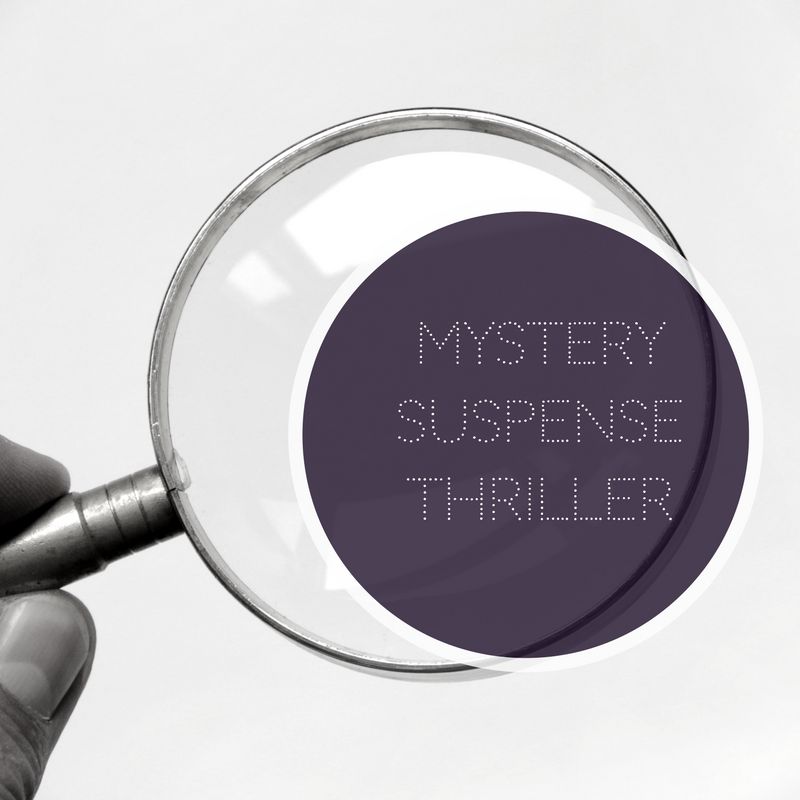Does the addition of a mystical character or creature enhance or detract from our mystery, suspense, and thrillers?
Maybe.
Will adding the supernatural to our story set us apart or make us look like amateurs?
It depends. But it seems well suited for an added twist in our genre.
Consider the following.
What is the element? How well is it written? Who comprises our intended audience?
What are mystical elements?
The definition of mystical covers the range from the supernatural and paranormal to extraordinary and exceptional. For purposes of this article, let’s focus on angels and magic and/or dark forces.
We’ve all viewed angel characters in feel-good TV dramas and movies. In fact, in some shows and books we expect these celestial visitations or at least wonder if certain characters might be heavenly messengers. Think Karen Kingsbury’s popular Angel Walking book series. Roma Downey starred in the Touched by an Angel television program from September 1994 through April 2003. Various Hallmark Channel movies feature angel characters especially in their Christmas-themed shows. Or go back further and Michael Landon’s Highway to Heaven enjoyed success in the 1980s.
On the other hand, black magic and/or dark forces comprise a huge mystical element in much of literature and film. The successful Da Vinci Code book series by Dan Brown, and the subsequent movies, feature these elements. The Twilight Sagas fascinated audiences from 2008 through 2012 by casting vampires and their human counterparts. The Vampire Chronicles by Anne Rice have sold eighty million copies worldwide.
How do we add a mystical element and make it believable?
Utilize a light touch. Avoid crossing too heavily into the paranormal, supernatural, or fantasy worlds. These are separate genres from the mystery, suspense, and thriller, although all share intrigue, conflict, and tension.
Keep the element from rising above the plot line. Dish out the influence of mystical characters like salt on popcorn. Too much makes even the best popped snack inedible. But if our writing takes us in that direction, dial back the mystical or consider changing genres.
Fight the pull of lazy writing. Let the character struggle with clues or relationships. They must do the hard work and experience tension and conflict even though technically a mystical character can aid our protagonist in accomplishing most anything.
Avoid the dreaded Deus ex machina, Latin for “a god from the machine.” Don’t depend on interjecting a new force, character, or circumstance to rescue the protagonist at the climax of the story. Plot no easy answers or direct paths for the protagonist’s journey.
Mystical elements or not, the same rules of writing a novel apply.
Who is our target audience?
In the Inspirational Market angels may be a good fit. Messengers from heaven are biblical, add a feel-good charm, and can offer an unexpected twist. Goodreads lists hundreds of angel related books on their website. What are your favorite clean-reads utilizing angels? Share yours in the comment section below!
The General Market often expects darker elements. Stephen King has sold more than 350 millioncopies of his fifty-eight novels, many of which have been adapted into feature films, miniseries, and television series. The highly successful TV program, Supernatural, ran from 2005 through 2020.
Know your readers and publishers. Be aware of the preferences of both the Inspirational and General markets before pitching and/or marketing your novel. Even before putting words to the page, ask who is the audience and what are your goals to reach them? The answers will guide your writing.
Is a mystical element good or bad? It depends on how we utilize this intriguing and challenging feature. Considering adding it to your arsenal of literary devices. Just the right touch may make your story rise above the rest in the mind of publishers and readers. And that’s what we want.
Write well, my friends,
PJ Gover

PJ Gover encourages her readers to live the thrill one story at a time. She wrote her first thriller at age nine, all of six pages, but only returned to creating suspense/thrillers years later after unearthing her deceased father’s secret work designing missiles for the government. After fifteen writing awards her high school English teacher must be shaking her head in disbelief. A ranch in Texas serves as home base. Offer her well-crafted chili rellenos or anything gluten-free and you’ll have a friend for life. Jim Hart of Hartline Literary represents PJ.
She’d love to hear from you!


 We love helping your growing in your writing career.
We love helping your growing in your writing career.

2 Comments
I like Ms. Gover’s perspective here. Her comment, “Avoid the dreaded Deus ex machina, Latin for a god from the machine. Don’t depend on interjecting a new force, character, or circumstance to rescue the protagonist at the climax of the story.”
This really hit the nail on the head in my opinion. In my world of science fiction, I try to write realistic characters, creatures. Even in the fantasy world, tossing in a supernatural being to save the day with zero development will lose the reader. By the way, her comment about lazy writing is greatness.
I haven’t personally read any of her books, but I’m planning on it this summer.
Thanks.
Mike
You’re so right, Mike. Let our protagonist start AND finished their own story with the tools they’ve gained along their journey – much more entertainment value and engagement with our readers. Thanks for the comment!